The 30 Best Electronic Music Releases of 2020
It is hard to imagine electronic music experiencing a stranger and more unsettling year than this one; only something like the collapse of the internet, or the electrical grid itself, might inflict even more damage than the pandemic has wrought on dance music’s customs, economy, and morale. But the music has always been among the most utopian of art forms, and in the absence of clubs, this year’s most visionary electronic musicians kept us dancing in our kitchens and our living rooms and our minds, dreaming of a day when we might finally come together once again. Encompassing singles, EPs, albums, and compilations, from artists as varied as Autechre, Róisín Murphy, Jayda G, Theo Parrish, and Lyra Pramuk, these were the records that made isolation bearable. (The following list, sorted alphabetically, includes albums and tracks found on Pitchfork’s main year-end tallies, as well as additional entries that did not make those lists but are just as worthy of your time.)
Check out all of Pitchfork’s 2020 wrap-up coverage here.
(All releases featured here are independently selected by our editors. When you buy something through our retail links, however, Pitchfork may earn an affiliate commission.)

AceMo: I Want to Believe / AceMoMA: A New Dawn / Gallery S: Gallery S / MoMA Ready: Deep Technik / Various Artists: HOA011
It would have been easy for DJs to feel dispirited by 2020’s club closures, but not AceMo and MoMA Ready. As rising central figures in the New York underground, the two producers took advantage of their forced sabbatical by immersing themselves in the studio. The result was one of the most remarkable and prolific runs in recent dance music. AceMo’s I Want to Believe and MoMA Ready’s Deep Technik both lean into the lush chords and wistful emotions of classic Detroit techno, and are delivered with a raw, unvarnished immediacy. On his self-titled album as Gallery S, MoMA Ready balances blissfully deep anthems like “Grace Under Pressure” with hardware-centric forays into jungle and footwork. And together in the duo AceMoMA, the two zig and zag between sampled soul, cut-up breaks, rave stabs, and radically swung machine grooves, folding disparate influences into an ecstatic shot of energy. Combined with a string of compilations from MoMA Ready’s Haus of Altr label that showcased the strength and creativity of “unabashed black electronic expression,” they proved that, despite everything, dance music remains not just alive and kicking, but urgent as ever. —Philip Sherburne
AceMo, I Want to Believe: Apple Music | Bandcamp | Spotify | Tidal
AceMoMA, A New Dawn: Apple Music | Bandcamp | Spotify | Tidal
Gallery S, Gallery S: Apple Music | Bandcamp | Spotify
MoMA Ready, Deep Technik: Apple Music | Bandcamp | Spotify | Tidal
Various Artists, HOA011: Bandcamp

Arca: KiCk i
In February, electronic experimentalist Arca dropped @@@@@, a 62-minute song framed as a pirate-radio broadcast from a post-singularity future that begins with whispers of a “diva constructed.” KiCk i, released four months later, is the Barcelona-based musician’s more straightforward take on diva-hood. Bullet casings fall to the floor on opener “Nonbinary,” but Arca isn’t under attack: “I do what I wanna do when I wanna do it,” she deadpans, and then proceeds to prove it by remaking herself with each track. KiCk i is her first record to prominently feature several guest singers, with Björk, Rosalía, SOPHIE, and Shygirl all present to witness her various metamorphoses. She turns liquid on the synth-sheathed “Time,” raps on the chaotic “Riquiquí,” and glitches with her voice pitched high on “Rip the Slit.” Presented as the first of four eventual albums, KiCk i shares all the promise of becoming, in both its pain and its joy. –Colin Lodewick
Further Reading: Live From Quarantine, It’s the Arca Show
Listen/Buy: Rough Trade | Apple Music | Spotify | Tidal

Autechre: SIGN
Autechre’s method lends itself to difficulty. Working remotely in separate cities, the duo’s members collaborate in code by testing, tweaking, and endlessly reiterating upon one another’s software patches, yielding unpredictable patterns and perpetually bifurcating fractals. Over the past decade, their output had become increasingly convoluted, but with SIGN, they reined in the sprawl and got in touch with their emotions. The result: an hour-long mood piece that infuses their dazzlingly abstract sonic world-building with deep feeling, giving us a refreshingly complex take on melancholy. –Philip Sherburne
Listen/Buy: Rough Trade | Apple Music | Bandcamp | Spotify | Tidal

Beatrice Dillon: Workaround
The internet has plenty of playlists full of pillowy background noise, built for tuning out while you dig into the task at hand. Workaround inverts that dynamic: By requiring sustained close attention to the thumps and shimmers in your headphones, it offers something truly meditative. To the casual listener, Beatrice Dillon’s avant electronic tracks might seem austere. They are mostly untitled, proceed according to a single tempo across the whole album, and feature a drastically limited instrumental palette. Rarely does a particular sound last longer than a single beat. There is almost no reverb. But if you listen closely, a universe might open in the split-second space between two hi-hats. Synth stabs that at first seem uniform take on entirely new shapes with every repetition. Each element, shorn of everything extraneous, glows with significance. –Andy Cush
Listen/Buy: Apple Music | Bandcamp | Spotify | Tidal

Bullion: “Hula”
The slow-motion electronic pop of Bullion’s “Hula” soundtracks a series of vacations, recounted as pleasantly fogged memories. The music is seductive, almost narcotic, with synth pads exhaling in long, overlapping layers. But something feels off. The instrumental break following an unexpected chord change lurches like a luxury liner in choppy water; melodic lines become queasily detuned. The London-based producer-songwriter is taciturn as a lyricist and a singer, but such off-center musical moments help to fill in the blanks, suggesting that holidays and hula dancing offered only partial reprieve from some looming anxiety. “Are people in pain where you are?” he wonders repeatedly, then thinks better of it: “I’ll ask you tomorrow.” –Andy Cush
Listen: Bullion, “Hula”

Caribou: “Never Come Back”
After the sentimentalism of 2014’s Our Love, Dan Snaith rebooted the mad-professor mentality that had fueled the flower-power plunderphonics of his early work. Nestled amongst Suddenly’s proggy cornucopia, though, is “Never Come Back,” one of Caribou’s most concise and powerful singles yet. Riding on little more than silky house stabs, helium-high vocal science, and a devastatingly catchy hook, it’s a precision-engineered peak from a master of anthemic dance pop. –Chal Ravens
Listen: Caribou, “Never Come Back”

DJ Python: Mas Amable
The centerpiece of this disembodied take on dance music is an 11-minute tropical-dub misery meditation threaded with de-motivational quotes: “It’s OK to feel hopeless.” “Life has no meaning but suffering.” Too on the nose for 2020? It doesn’t feel that way when you’re neck-deep in DJ Python’s depressive twist on “deep reggaeton.” Mas Amable’s eight rain-streaked tracks blur into one subtly-shifting mood piece as New Yorker Brian Piñeyro weaves heavy breaks and percussion through cloudy synths and barely-there melodies. For those who’ve still never touched a sourdough starter, this was pitch-perfect wallowing music for ineffectual afternoons. –Chal Ravens
Further Reading: DJ Python Will Make You Feel Good
Listen/Buy: Apple Music | Bandcamp | Spotify | Tidal
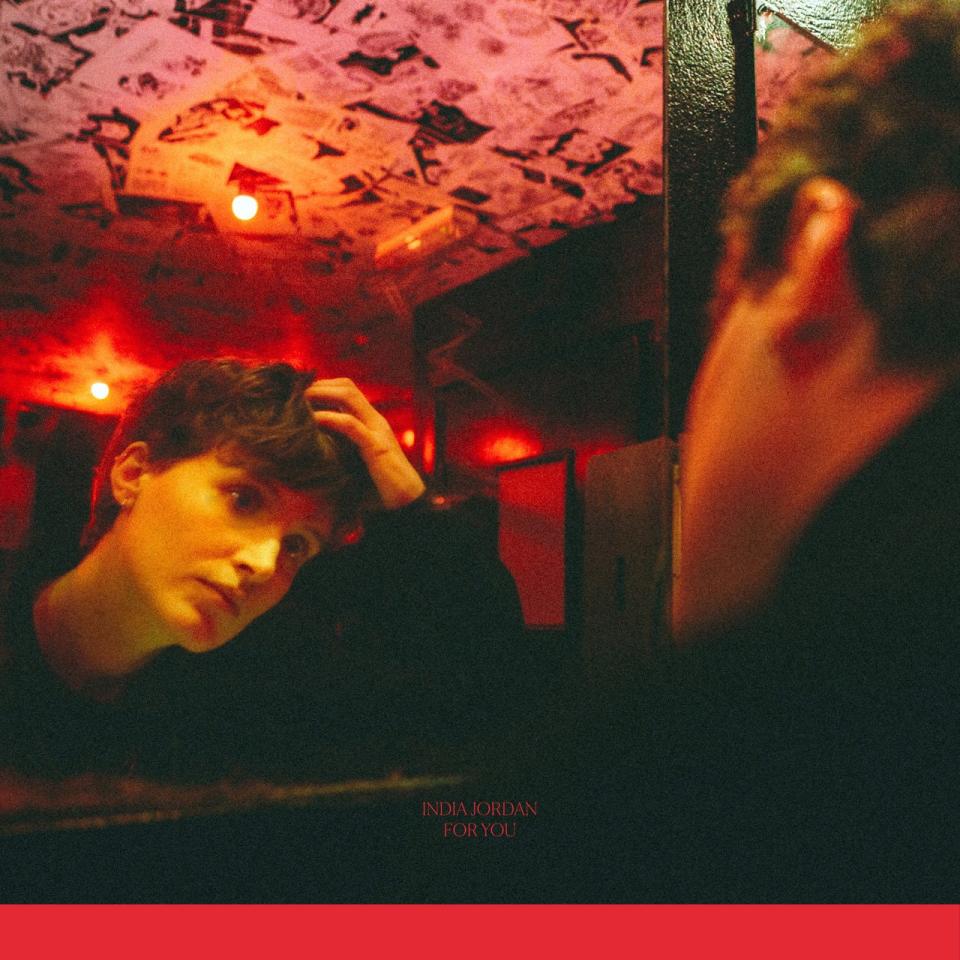
India Jordan: “For You”
With euphoria in short supply and dancefloors shuttered around the globe, 2020 hasn’t been particularly kind to dance music. Outside the context of booming sound systems and late-night revelry, even the most expertly crafted club tracks have lost some of their luster, which makes the glittering elation of “For You” all the more precious. Bounding along atop a turbo-charged filter-house template, the song gleefully reanimates the ghosts of French touch and harkens back to the days when house producers regularly (and rightfully) landed in the Top 40. As the title track of Jordan’s For You EP—an effort reflecting the London artist’s struggle to move past the homophobia and small-mindedness that pervaded their formative years in the North of England—the song is a joyous ode to self-love and self-acceptance that underscores the healing power of a good rave. –Shawn Reynaldo
Further Reading: London Dance Producer India Jordan Is Building Community and Club Bangers
Listen/Buy: Bandcamp | Spotify | Tidal
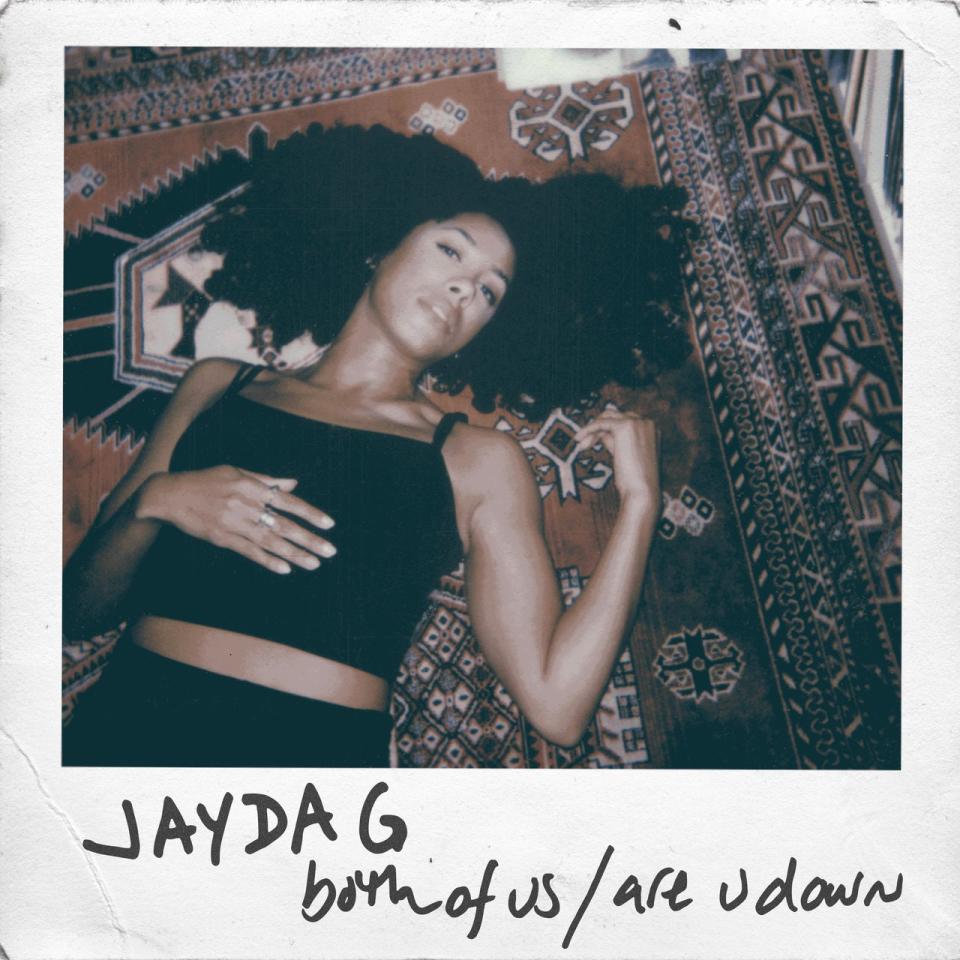
Jayda G: “Both of Us”
There were so very few reasons to break out in ecstatic dance this year, but Jayda G offered a sublime exception. The London-based producer dropped her bubbly single “Both of Us” mid-summer, and it felt like being rescued by a party barge while lost at sea. Bright, bouncing keys are the driving force of her spirited house banger, but what happens on the song’s perimeter is just as entrancing. Dry, papery beats, synchronized claps, and muffled chit-chat lend the atmosphere of a packed, pulsing nightclub—and the molasses-slow breakdown offers one of the best beat-drop payoffs of the year. After months of inertia, Jayda G brought the dancefloor to us. –Madison Bloom
Listen: Jayda G, “Both of Us”
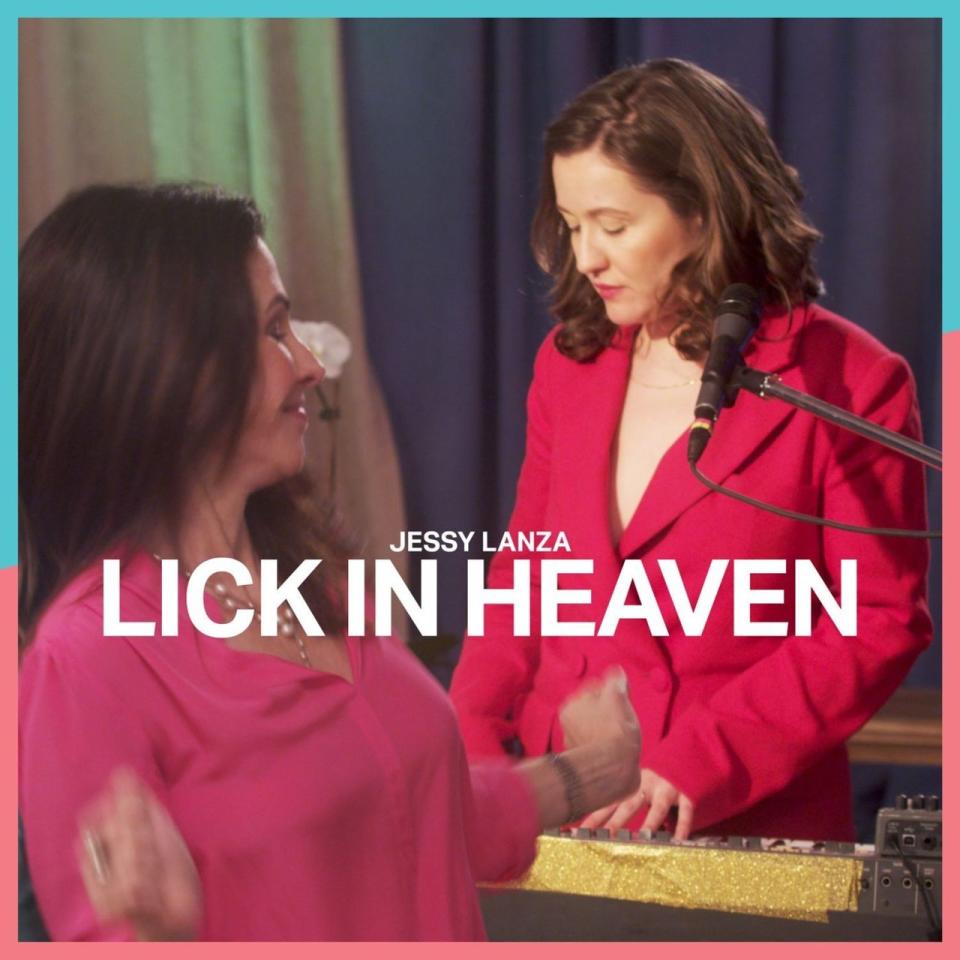
Jessy Lanza: “Lick in Heaven”
Rage can be a powerful force for good when focused, but taming it is often difficult. This tricky dance between intensity and chaos plays out on Jessy Lanza’s “Lick in Heaven”: The bounce of the bass synth and Lanza’s angelic voice are red herrings for the song’s angry underpinnings. On one level, the song is about letting loose with the feelings you keep pent up inside. On another, it’s about catching yourself in the throes of your worst moments, taking a step back, and reclaiming control of your life. –Noah Yoo
Listen: Jessy Lanza, “Lick in Heaven”
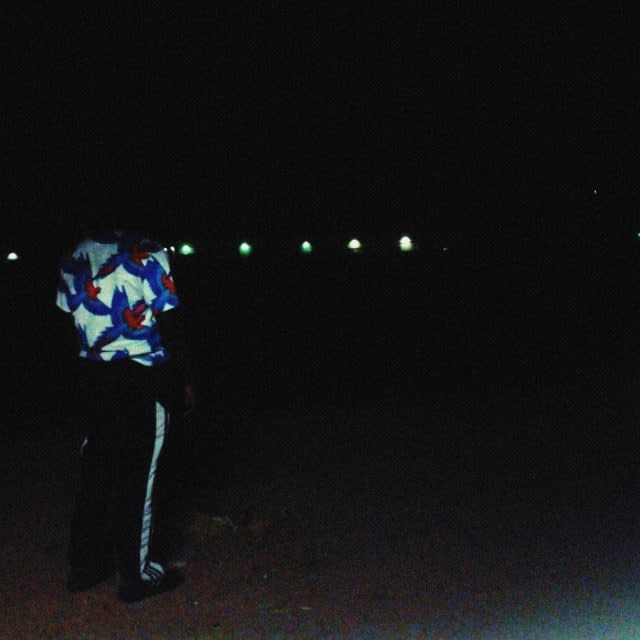
Kareem Ali: “Night Echoes”
Of course it’s perverse to single out one track from Kareem Ali’s rapidly expanding catalogue; the Arizona-based producer has released literally dozens of EPs and albums in 2020. But “Night Echoes” goes some way to glimpsing the scope of Ali’s project, in which he brings the Black Atlantic legacy into fresh focus through forays into ambient, drum’n’bass, techno, and, as perfected here, delirious deep house. With a hard-boiled kick drum weaving its way around a sleek, Luomo-esque vocal chop that extends, looped hypnotically, to the far horizon, “Night Echoes” is thrillingly simple and hard to switch off. –Chal Ravens
Listen: Kareem Ali, “Night Echoes”

Kate NV: Room for the Moon
Room for the Moon feels like a safe place to hide from mounting anxiety. Moscow artist Kate Shilonosova’s third full-length is an engrossing collection of kaleidoscopic avant-pop in which each song unspools into a fantastic world inspired by everything from Sailor Moon to surrealist René Magritte to the Russian Mary Poppins. The album is always enchanting and full of small surprises: the particularly cartoonish warble of a synth on “Sayonara,” the intimate binaural hums on the meandering “Marafon 15,” the burst of laughter answering the lure of a saxophone on the cosmos-traversing “Plans.” New details peek out on every listen, like elements of wonder waiting to be discovered. –NM Mashurov
Further Reading: Kate NV on the 9 Things That Inspired Her Excellent New Album, Room for the Moon
Listen/Buy: Rough Trade | Apple Music | Bandcamp | Spotify | Tidal

Kelly Lee Owens: Inner Song
The followup to Kelly Lee Owens’ breakthrough self-titled LP is rooted in pain and loss—the shedding of a toxic relationship, the death of her grandmother, and the decay of the environment. Inner Song’s palette of pulsing basslines, swirling synths, and visceral found sounds draws influence from the practices of the sound-healing community: sound baths, shamanic drumming, and voice work. Owens wrote the lyrics in a depressive state following a trauma-release therapy session, transforming that cathartic expulsion of her pain into a record with healing properties of its own. Inner Song is club music at its most spiritual. It lies at the intersection of beats and ambience, where sounds are just vibrations entering and leaving the body, cleansing it of toxins. –Matthew Ismael Ruiz
Further Reading: How Radiohead, Social Media Addiction, and the Ravages of Climate Change Inspired Kelly Lee Owens’ New Album
Listen/Buy: Rough Trade | Apple Music | Bandcamp | Spotify | Tidal

Loraine James: Nothing EP
How to follow an album like 2019’s For You and I? Loraine James’ debut LP announced Hyperdub’s newest talent through a set of contorted rhythms seared with vulnerability and palpable emotion. So on this year’s Nothing EP, she decided to flex her versatility by exploring four different directions of travel, as if brandishing a particularly shiny compass. Assisted by guests including N.A.A.F.I artist Lila Tirando a Violeta and Iranian-born MC Tardast, James carves out icy cathedrals of stutter and glitch where haunted trance and symphonic horror collide with explosive force. –Chal Ravens
Listen/Buy: Rough Trade | Apple Music | Bandcamp | Spotify | Tidal

Lyra Pramuk: Fountain
The opening notes of Lyra Pramuk’s debut album, Fountain, are like a slow tracking shot through the gates of a musical Atlantis. Using only her transmuted and multi-layered vocals, the Berlin-based composer creates a dense architecture where choral music and meditative techno meet. While some vocal lines emulate pulsing bass and celestial synth, the prevailing current is a surging chorus of near-language, struck through with the unmistakable trembles and notches of a human voice. Rather than muddling her meaning, this single instrument’s ambiguity—of feeling, timbre, gender, even species—suggests a state of perpetual transformation. Look, Pramuk seems to declare, at how much we contain. –Jazz Monroe
Further Reading: Lyra Pramuk’s Surreal Songs of the Self
Listen/Buy: Apple Music | Bandcamp | Spotify | Tidal

ML Buch: Skinned
The sparkling debut album from Danish composer, producer, and singer ML Buch could almost be a sister radio station to Magic Oneohtrix Point Never. Daniel Lopatin’s retro-fantasia casts a certain shadow over Buch’s wobbling guitar licks and synth loops, but her filo-like layers of vocal harmony propel Skinned into its own territory. Buch is a modern songwriter from root to tip, wedging her ’80s reference points into digital worlds with very digital problems: “I need to quit lurking on your profile,” she decides; “I’m touching screens more than skin.” In a year of missed connections, Skinned summed up that uncomfortable friction between physical desires and unresponsive avatars. –Chal Ravens
Further Reading: Step Inside ML Buch’s Digitized Art-Pop Wilderness
Listen/Buy: Apple Music | Bandcamp | Spotify | Tidal
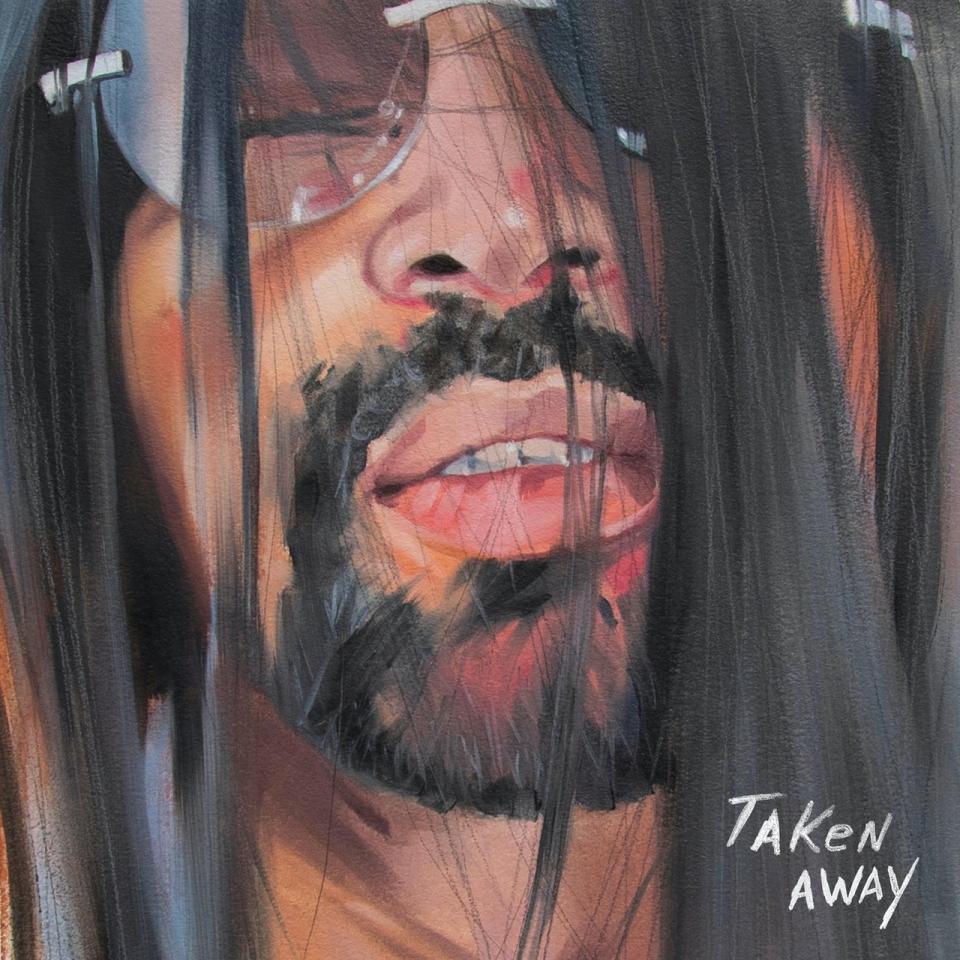
Moodymann: Taken Away
The most expansive and exquisite album yet from Detroit’s Kenny Dixon Jr. is also his most introspective. Each song on Taken Away is a miniature epic, flipping between his signature purple-hazed deep house loops and grand diversions into soul, R&B, gospel, funk, and even jazzy bossa nova. He’s no longer the Freeki MF we knew and adored, though. Betrayal, suspicion, and obsessive thoughts come folded inside these grooves: “You never been a good soul to no one, especially me,” he croaks. Boosted into widescreen by police sirens and an entire cast of voices (house icon Jamie Principle, jazz singer Sky Covington, a burst of Al Green), Taken Away is one of those rare albums that really does feel like the soundtrack to an imagined movie. –Chal Ravens
Listen/Buy: Bandcamp | Spotify | Tidal
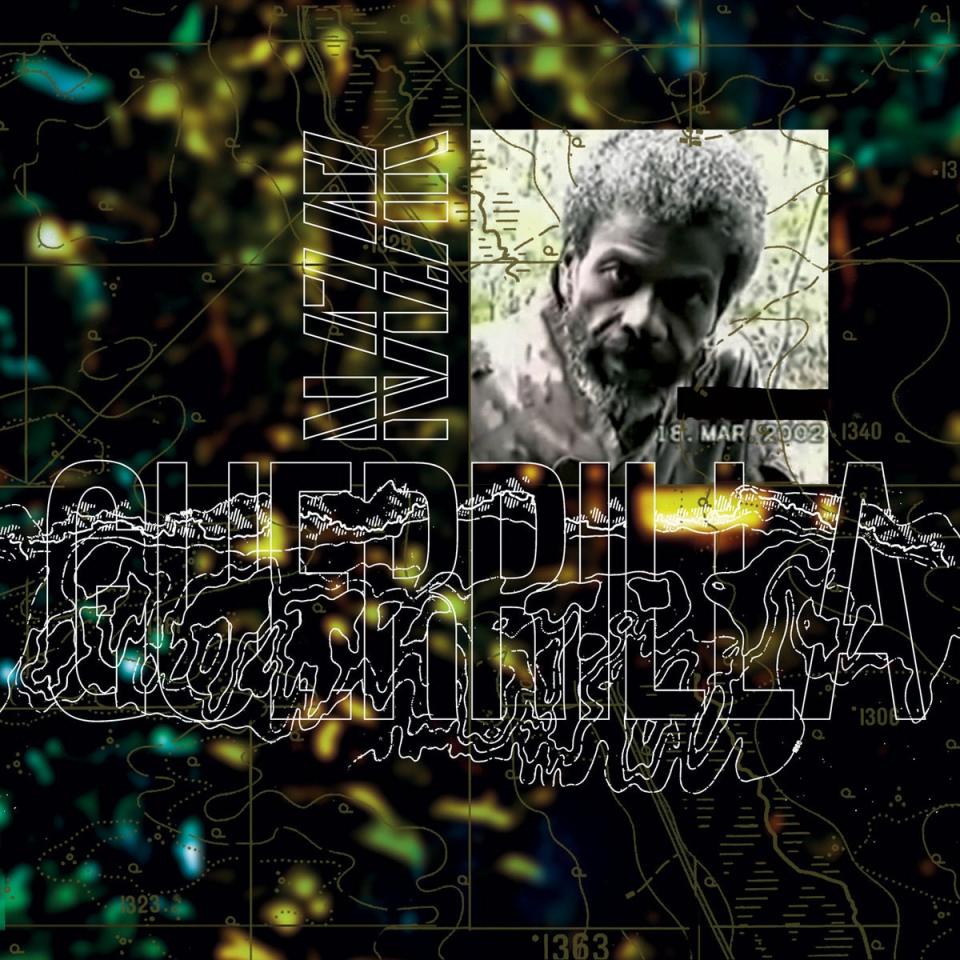
Nazar: Guerrilla
In contrast to the celebratory sound of Angolan kuduro, Manchester-based Nazar’s “rough kuduro” uses fractured rhythms and blasted digital textures to dig into the post-colonial past of the African nation of his family’s heritage. Between 1975 and 2002, the former Portuguese colony endured what has been described as “the worst war in the world”; Nazar’s Guerilla, inspired by the wartime journal of his father, a rebel general, doubles as a series of snapshots of the civil conflict. Tracks like “Arms Deal” and “UN Sanctions” put a grimly literal spin on the percussive shrapnel and gun-cock samples favored by grime and bass music; the birdsong and mournful vocal hook of “Retaliation” suggest that even moments of calm are soon ruptured by violence; on “Bunker,” throbbing helicopters punctuate Nazar’s murmured refrain of “Gun in my hands/Bullets in my chest.” But there are moments of tenderness, too: “Mother” is an ambient lullaby that cradles echoes of a distant choir—a glimmer of hope amid the wreckage. –Philip Sherburne
Listen/Buy: Rough Trade | Apple Music | Bandcamp | Spotify
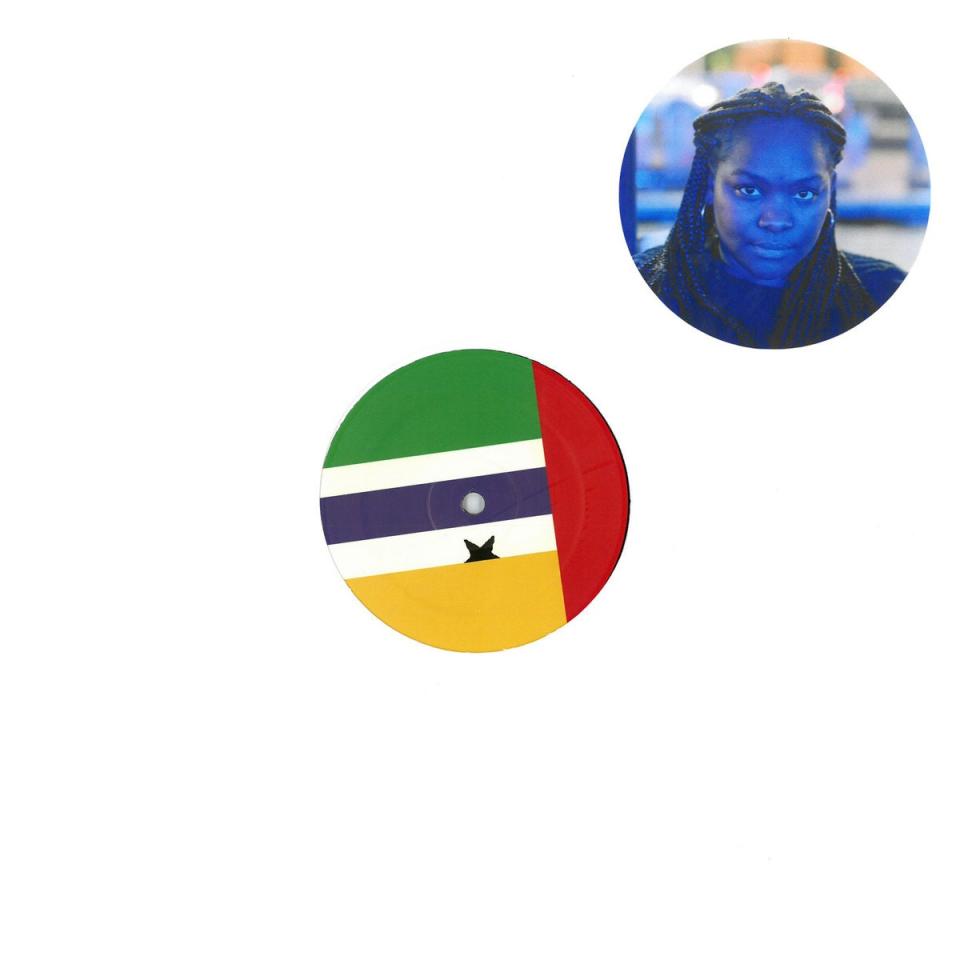
Nídia: S/T
Three years after Nídia é Má, Nídia é Fudida provided a platform for the Portuguese producer’s wild gyrations and ultra-saturated tone colors, Nídia followed up in the summer of 2020 with a trilogy of releases, spinning her fiercely original take on Afro-Portuguese batida in three different directions. In contrast to the laid-back Badjuda Sukulbembe 7'' and the woozy Não Fales Nela Que a Mentes LP, the unceremoniously titled S/T is a short, sharp shock of a record. In four explosive tracks, Nídia smashes together staccato horn riffs, martial drums, gruff shouts, and even what sounds like cawing crows with the blaring synths of main-stage EDM. It’s a tough, concussive sound: Gunshots explode in clouds of reverb, and snares strike like jackhammers. But every now and then, there’s a glimpse of striking beauty—when the nervous arpeggios of the closing “Nunun” give way to a wistful new-wave synth melody, it becomes a patch of calm amidst the chaos. –Philip Sherburne
Further Reading: A Guide to Portugal’s Príncipe Discos, One of the Most Exciting Dance Labels on Earth
Listen/Buy: Apple Music | Bandcamp | Spotify

Pale Blue: “I Walk Alone With Acid”
The jarring dissonance between a four-on-the-floor acid-house beat and the burden of having a body makes electronic duo Pale Blue’s “I Walk Alone With Acid” more incisive than your average dance banger. “Is my body mine?/Is my fear real?” Elizabeth Wight asks breathily over Mike Simonetti’s propulsive beats, checking her glass before she sips, remembering that her keys can be a weapon in the dark. It’s a song for girls, gays, and theys leaving the club with a can of pepper spray and a prayer: an ominous reminder of the dangers of the walk home, a sonic shot of cortisol. –Linnie Greene
Listen: Pale Blue, “I Walk Alone With Acid”

Rian Treanor: File Under UK Metaplasm
Rian Treanor’s File Under UK Metaplasm is like an origami model of the past 30 years of dance music, uniting disparate styles and eras with its crisp folds and sharp angles. Elements of techno, drum’n’bass, IDM, garage, dancehall, and grime all abut and overlap, and every jutting rhythmic vector feels like a shortcut across time and space. Despite the “UK” in the title, the 32-year-old producer’s vision extends far beyond his insular birthplace: Drawing inspiration from a 2018 residency at the Nyege Nyege crew’s Boutiq Studio in Kampala, Uganda, he blends the unhinged polyrhythms of Tanzanian singeli into the similarly breakneck syncopation of Chicago footwork. In contrast to dance music’s notoriously fractious tendencies, File Under UK Metaplasm is a celebration of its global interconnectedness. –Philip Sherburne
Listen/Buy: Rough Trade | Apple Music | Bandcamp | Spotify | Tidal
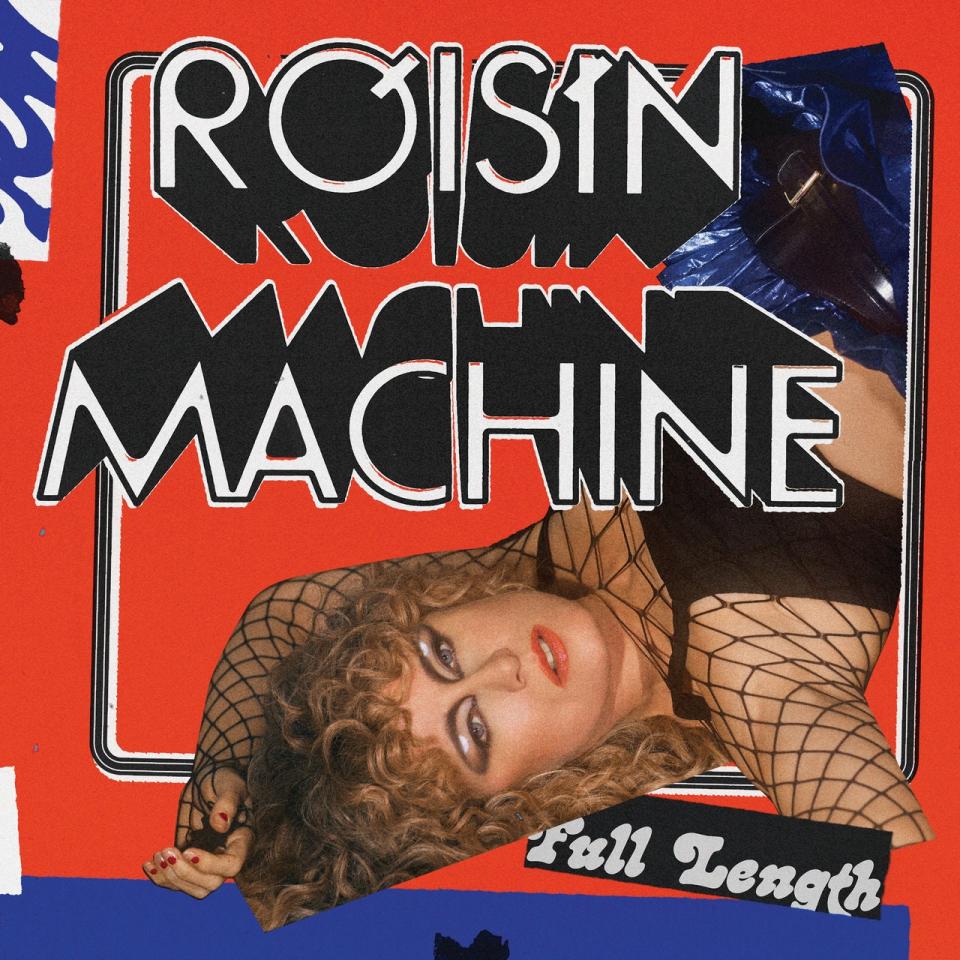
Róisín Murphy: Róisín Machine
Dua Lipa, Jessie Ware, and Kylie Minogue all sashayed back to the disco podium in 2020, but none captured the paradox of the genre—its hedonism and heartbreak, its pain dunked in prosecco—quite like Róisín Murphy. Twirling in the fog of producer DJ Parrot’s near-industrial spin on 12” disco, Murphy lets us into her wildest dreams and wrongest desires (“Ten lovers in my bed / But I want something more,” she sings on “Something More”). From the velvet-heavy chug of “Simulation” to the microdosed funk of “Shellfish Mademoiselle,” Róisín Machine knows what it means to disappear in the dry ice and come out feeling new. –Chal Ravens
Further Reading: Róisín Murphy on the Music That Made Her
Listen/Buy: Rough Trade | Apple Music | Spotify | Tidal

The Soft Pink Truth: Shall We Go on Sinning So That Grace May Increase?
For years, Matmos’ Drew Daniel used his solo project the Soft Pink Truth to join his disparate interests, reimagining punk classics and black metal as squirrelly glitch techno. His 2020 album of original compositions is a radically different proposition: a 43-minute ambient suite meant to counter fascism’s global spread with joy rather than despair. Close friends and peers contributed voice, reeds, percussion, and piano; the album’s nine tracks shift from airy drones to richly rendered deep house, from lyrical etudes to propulsive classical minimalism. For all its gentleness, it is an album of deep resolve, unshakable in its commitment to the idea that a better world is possible. –Philip Sherburne
Listen/Buy: Rough Trade | Apple Music | Bandcamp | Spotify
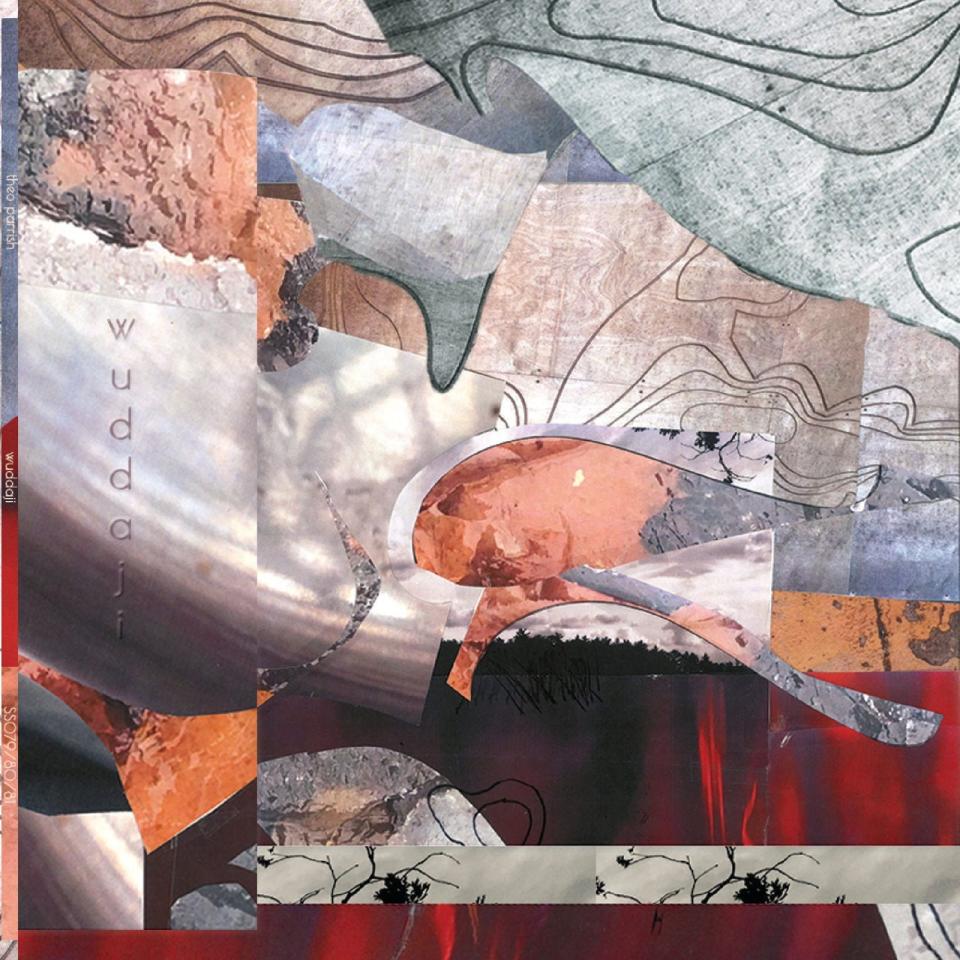
Theo Parrish: Wuddaji
Dance music—virtually all of it rooted in Black musical traditions—carries the twin promises of resistance and liberation encoded in its very grooves. It is a cruel irony that in a year in which opportunities to show defiance and solidarity were most needed, particularly by Black Americans and other oppressed people, dancing was effectively off limits. This only made Detroit musician Theo Parrish’s Wuddaji all the more welcome. Folding jazz, funk, and soul into the intensely focused, richly appointed strain of house and techno he has been developing since the mid ’90s, Parrish offered eight heady, improvisatory, dazzlingly polyrhythmic tracks that made the most of dance music’s expressive potential—with or without the chance to commune and cut rugs. The album’s liberatory subtext comes to the fore in Maurissa Rose’s gorgeous vocal turn on “This Is for You,” as affecting an anthem as Parrish has ever made. “This is for you,” she sings over luminous Rhodes and a brisk, crackling machine groove: “I see you sister/I see you brother/Keep on holding up each other.” –Philip Sherburne
Listen/Buy: Rough Trade | Apple Music | Spotify | Tidal

Various Artists: Kulør 006
If you weren’t already hooked on the tunnelling fast-techno sound of Kulør, the label founded by Danish DJ Courtesy, then you could be forgiven for missing its sixth release, but Kulør 006 heralds a vital stage of evolution. There’s no techno here at all, in fact: Instead it’s a sprawling tapestry of ideas, from minimalist tectonics (Lyra Valenza) and weightless arpeggios (Astrid Sonne) to black-ice ambient (Shacke; SØS Gunver Ryberg). Once you factor in two tracks, from Sofie Birch and X & Yde, that venture into celestial songwriting, Kulør 006 feels like a powerful recalibration of electronic music’s vanguard energies. –Chal Ravens
Further Reading: Electronic Label Kulør Is Capturing the Fast, Colorful Sound of Copenhagen
Listen/Buy: Bandcamp | Spotify

Yaeji: What We Drew
While the Korean-American producer Yaeji has anchored her previous work in strobe-lit beats and floor-shaking bass, her first full-length mixtape captures the anxious, aching throb of the morning after a night out. What We Drew burbles between frenetic drum patterns and hip-hop cadences, glossy electro beats and sinister synths. Within these entrancing soundscapes, stray ruminations float to the surface. “Why doesn’t it feel the same when I’m in the air?” she murmurs on “In the Mirror.” “My life is in a weird place,” she raps in Korean on “Free Interlude.” But she finds clarity, and joy, in examining it nonetheless. –Dani Blum
Listen/Buy: Rough Trade | Apple Music | Bandcamp | Spotify | Tidal
Originally Appeared on Pitchfork

